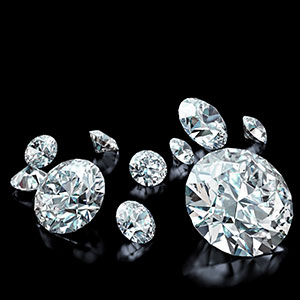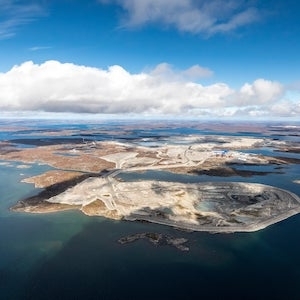
In a statement released today, Antwerp World Diamond Centre (AWDC) said that Antwerp doesn’t have to be the sole “rough node” for the upcoming G7 certification system meant to weed out Russian diamonds.
AWDC interim CEO Karen Rentmeesters tells JCK that other nodes could be stationed in producer countries like Botswana. That would let those nations verify the origin of their own diamonds. (Botswana is also a sorting center for De Beers production, and it’s possible a node there would be able to verify those goods, too.)
The G7 plan laid out by the European Union (EU) in December requires that all diamonds destined for a G7 country be certified in Antwerp. African producers have balked at this, arguing it would present a logistical headache. (Beneficiated goods—those cut in the same country they were mined—have always been excluded.)
AWDC now says it has no problem letting certain producers certify their own goods, though the final call will be made by governments, not industry.
Rentmeesters hopes G7 member nations and the European Union adopt a unified approach in September, when they intend to enact sanctions on diamonds over half a carat. The initial sanctions, which took effect in March, apply only to rough and polished diamonds of at least one carat.
The plan for September calls for all covered stones to be accompanied by G7 certificates, which will be supported by blockchain-based tracking programs. Rentmeesters says AWDC has brought in PricewaterhouseCoopers to test and rate the various systems, which has become a big help in determining what works.
“I do believe the technology is an essential part and will make the entire process more transparent,” she says.
Reuters recently reported that the EU will allow the import of so-called “grandfathered” goods—meaning diamonds bought prior to sanctions—though it may require documentary evidence of their purchase date. Member nations have reportedly not yet agreed on whether the sanctions will apply to lab-grown diamonds, diamond jewelry, and diamond watches, as originally proposed.
Rentmeesters acknowledges that the G7 sanctions have caused delays importing goods into Belgium, and sometimes elsewhere.
“If the paperwork is okay, and it’s single origin, there’s usually no problem,” she says. “And by now everyone understands what the paperwork means. That doesn’t mean there aren’t delays. There’s still margin for improvement and greater efficiencies. That’s what we’re working very hard on.”
But she adds: “We have to understand that this is the biggest change in the industry’s recent history. I’m not saying we should have unlimited patience. But the sanctions started in March. It’s now May.”
And she urges those in the jewelry business to understand that sanctions on Russian diamonds are now a fact of life, whether the industry likes it or not.
“People can say whatever they like about sanctions—they are the rules,” says Rentmeesters. “The European Union is serious about sanctions. They want a credible system. We feel it needs to be workable. If we come up with a system that isn’t workable, then you’ll have all sorts of loopholes.
“We all need to adjust to this new reality. Sanctions are there. They aren’t going away.”
(Photo: Getty Images)
- Subscribe to the JCK News Daily
- Subscribe to the JCK Special Report
- Follow JCK on Instagram: @jckmagazine
- Follow JCK on X: @jckmagazine
- Follow JCK on Facebook: @jckmagazine






